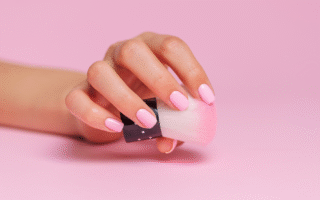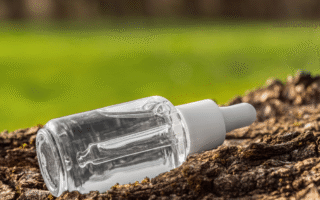Clean beauty has always been about more than just what’s in the jar. It’s about transparency. A belief that consumers have a right to know what they’re putting on their skin—and, increasingly, what they’re supporting with their wallet.
But what if the money behind the clean beauty movement isn’t so clean?
Consider Thirteen Lune, a retailer founded to champion BIPOC-founded beauty brands. A bold mission with backing from some big names—Sean “Diddy” Combs, who reportedly served as both investor and advisor, and Gwyneth Paltrow, whose wellness empire, Goop, has long positioned itself as the epicenter of clean living.
Yet the context complicates things. Diddy is now facing serious allegations of abuse and trafficking. And Paltrow’s Goop? It previously promoted OneTaste, a “women’s sexual wellness” company whose founder was just convicted on federal forced labor charges.
Gregg Renfrew, the founder of Beautycounter—another high-profile clean beauty brand—was also reportedly an early investor in Thirteen Lune. Beautycounter, once hailed as a clean beauty pioneer, operated as a multi-level marketing (MLM) company, a model often criticized for exploiting sellers more than it empowers them. Despite its mission-driven branding, behind the scenes, many consultants were left without support or clarity when the business structure unraveled.
This isn’t about guilt by association or demanding access to every private financial detail. No one expects to know everyone’s business. But when certain figures are elevated as the faces of clean beauty—when their names and platforms are treated as cultural or moral compasses—it matters who they choose to endorse, invest in, and profit with. Especially when some of those choices reveal disturbing patterns of harm, exploitation, or breathtakingly poor judgment.
Clean beauty has long prided itself on setting a higher standard. But if those standards apply only to formulas and not to leadership, funding, or intent, they start to feel hollow.
Clean funding, clean leadership, and clean intentions should matter too—or at the very least, be void of trafficking, abuse, and serious ethical failures.
Beautycounter itself serves as a cautionary tale. After being acquired by private equity giant Carlyle at a billion-dollar valuation, the company fell into chaos. Carlyle eventually exited. Earlier, Beautycounter had acquired NUDE Skincare, a brand founded by Ali Hewson, which brought Bono onto Beautycounter’s board.
Renfrew has since hinted at a return, posting “never say never 6/25” on Instagram. If true, it’s another example of how quickly clean beauty’s financial storylines shift behind the scenes, often without transparency.
Clean beauty doesn’t need to be perfect. But it does need to be honest. If it’s going to sell itself on ethics, then it can’t flinch when ethics become inconvenient.
It’s not about knowing everything—it’s about knowing enough. Enough to decide whether your money is supporting a better future, or just the same old power games dressed up in minimalist packaging.
Stripping It Back to What Matters
At the end of the day, clean beauty’s power has never come from celebrities or billion-dollar boardrooms. It’s come from consumers—asking better questions, demanding better ingredients, and pushing the industry toward something more transparent and more humane.



